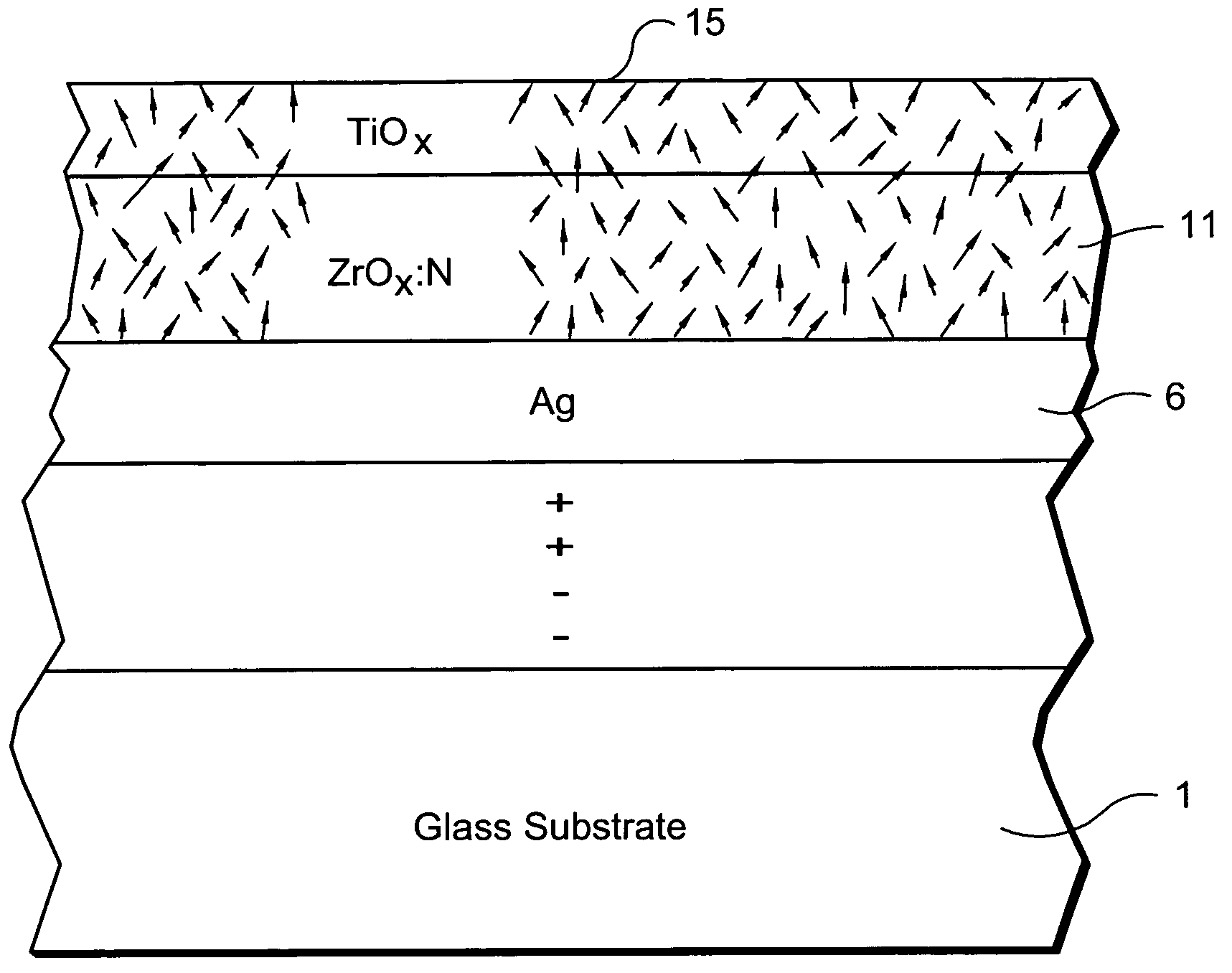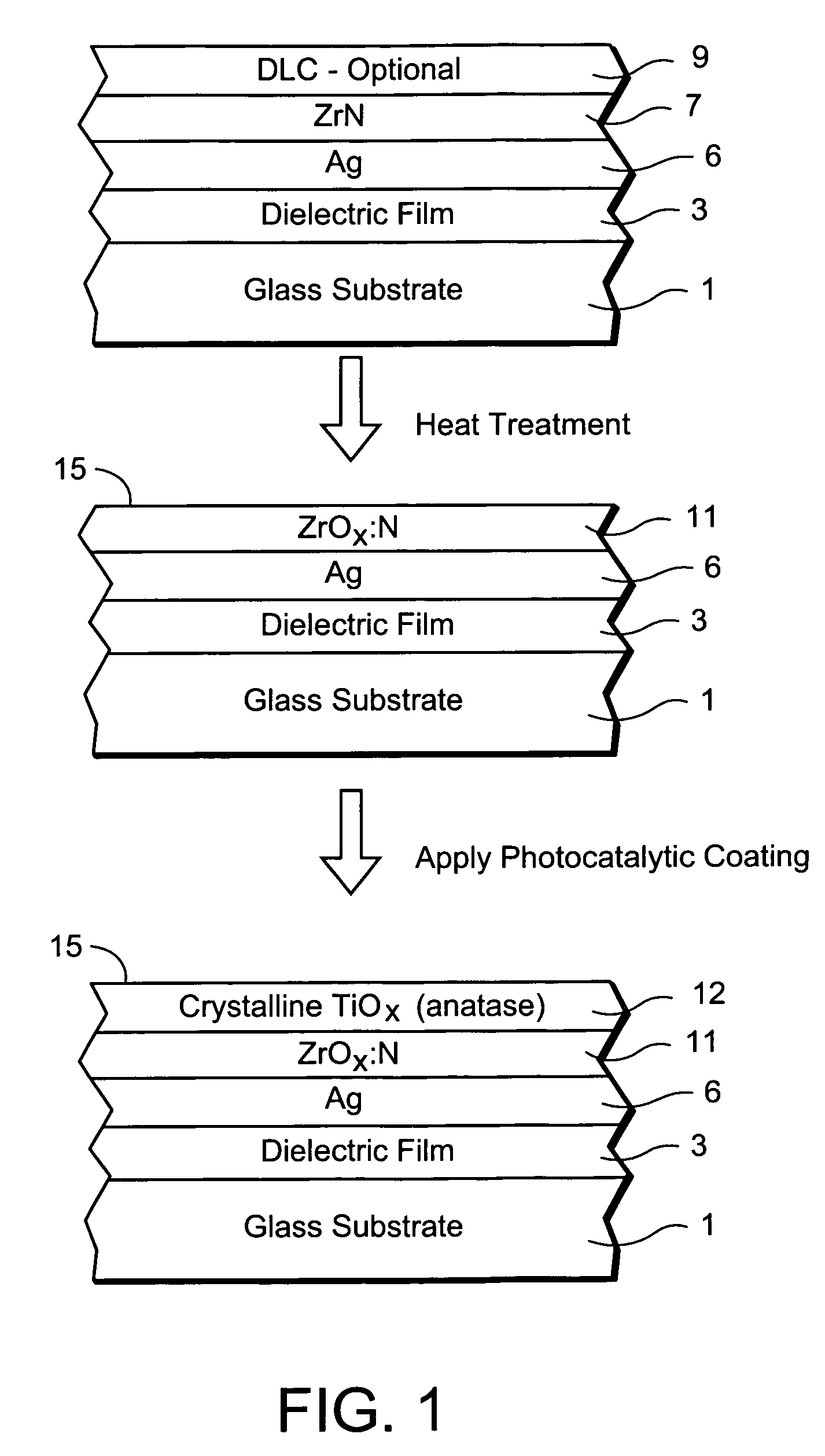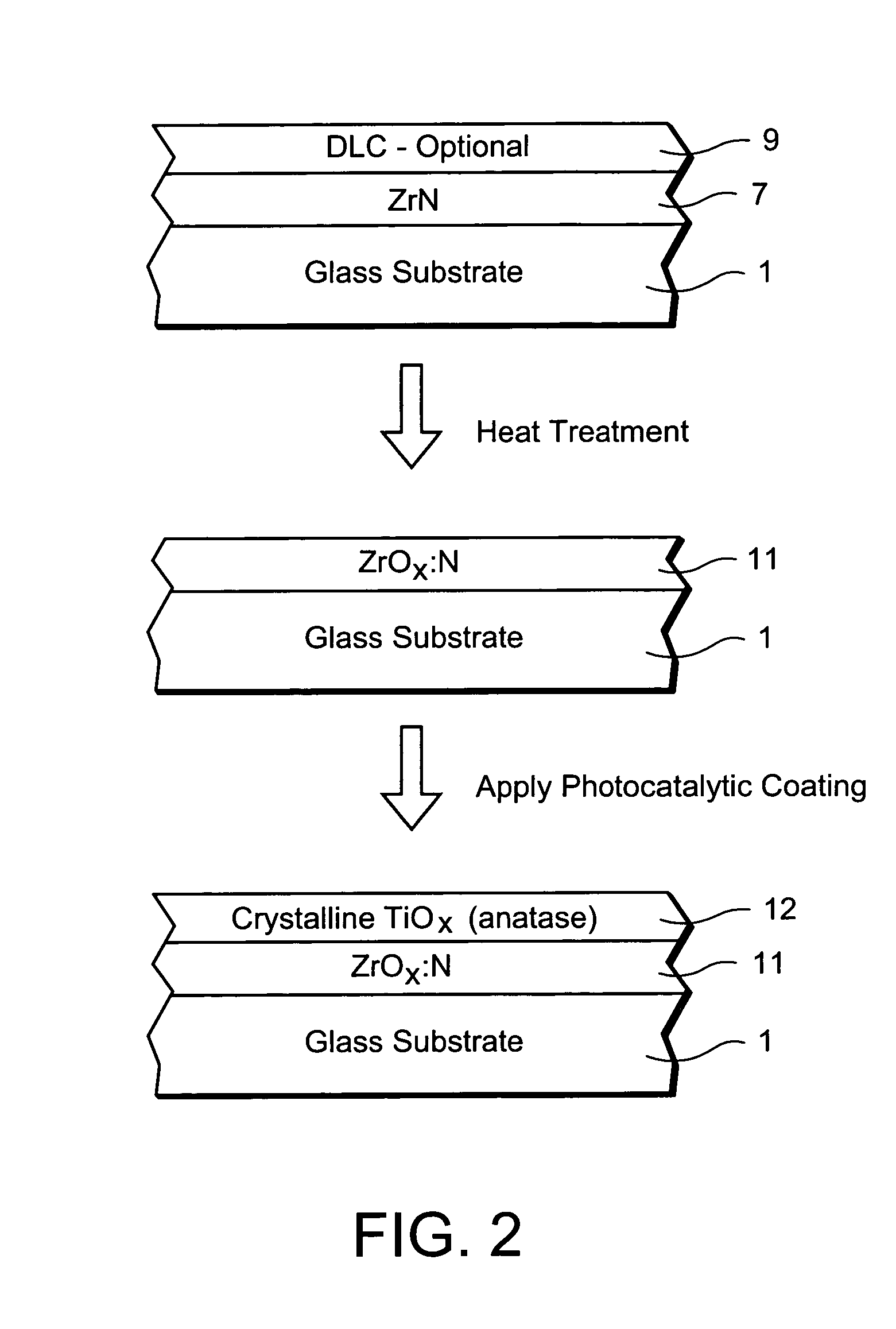Window with anti-bacterial and/or anti-fungal feature and method of making same
a technology of applied in the field of windows with antibacterial and/or antifungal features and methods of making same, can solve the problems of many deaths, and achieve the effect of increasing the visible transmission of coated articles
- Summary
- Abstract
- Description
- Claims
- Application Information
AI Technical Summary
Benefits of technology
Problems solved by technology
Method used
Image
Examples
example coating (top of fig.1)
Example Coating (top of FIG.1)—Layer Thicknesses (Pre-HT)
[0047]
LayerGeneralMore PreferredMost PreferredDielectric (film 3)50-1,000 Å 80-500 Å120-250 Å Silver (layer 6)20-400 Å20-200 Å20-100 ÅZrN (layer 7)40-500 Å50-400 Å90-220 ÅDLC (layer 9)5-1,000 Å 10-300 Å 40-65 Å
[0048]Once the pre-HT coated article shown at the top of FIG.1 is formed, it may be subjected to heat treatment sufficient for at least one of heat bending, thermal tempering, and / or heat strengthening. Referring to FIG.1, when subjected to HT (e.g., in a furnace using temperature(s) of from 550 to 800 degrees C., more preferably from 580 to 800 degrees C.), the upper or outer DLC inclusive layer 9 if provided burns off due to combustion because of the high temperatures used during HT. In particular, at least DLC layer 9 (which may be hydrogenated) may act as a fuel which upon combustion with oxygen from the atmosphere during HT produces carbon dioxide and water. This exothermic reaction, caused by combustion of hydroge...
example coating (fig.1)
Example Coating (FIG. 1)—Layer Thicknesses (Post-HT)
[0061]
LayerGeneralMore PreferredMost PreferredDielectric (layer 3)50-1,000 Å 80-500 Å120-250 ÅSilver (layer 6)20-400 Å20-200 Å 20-100 ÅZrO:N (layer 11)50-800 Å70-600 Å100-350 ÅTiO2 (layer 12)100-900 Å 300-600 Å 350-450 Å
[0062]It can be seen from the above that post-HT Zr inclusive layer 11 is typically thicker than is pre-HT Zr inclusive layer 7. In other words, the thickness of the Zr inclusive layer may increase during HT. In certain example embodiments of this invention, the thickness of the Zr inclusive layer (e.g., from layer 7 to layer 11) may increase at least about 5% during or due to HT, more preferably at least about 10%, and most preferably at least about 40%. This increase in thickness is caused by the transformation of layer 7 into layer 11, where oxygen migrates into the post-HT layer 11 (i.e., more oxygen migrates into the post-HT layer 11 than nitrogen leaves in terms of atomic % and / or size in certain instances).
[...
PUM
| Property | Measurement | Unit |
|---|---|---|
| refractive index | aaaaa | aaaaa |
| refractive index | aaaaa | aaaaa |
| thick | aaaaa | aaaaa |
Abstract
Description
Claims
Application Information
 Login to View More
Login to View More - R&D
- Intellectual Property
- Life Sciences
- Materials
- Tech Scout
- Unparalleled Data Quality
- Higher Quality Content
- 60% Fewer Hallucinations
Browse by: Latest US Patents, China's latest patents, Technical Efficacy Thesaurus, Application Domain, Technology Topic, Popular Technical Reports.
© 2025 PatSnap. All rights reserved.Legal|Privacy policy|Modern Slavery Act Transparency Statement|Sitemap|About US| Contact US: help@patsnap.com



